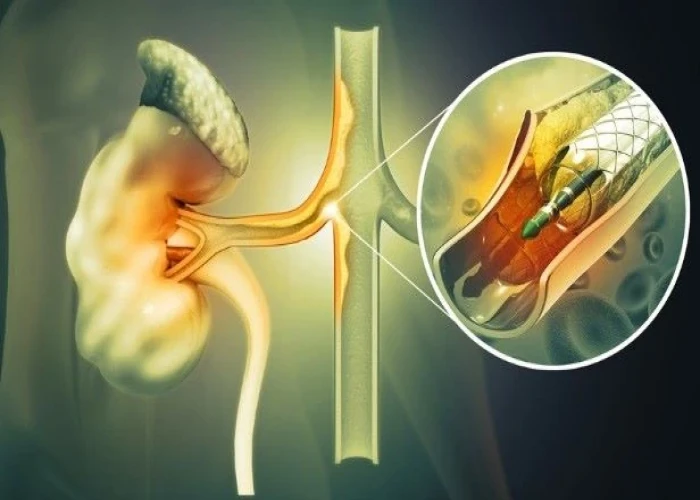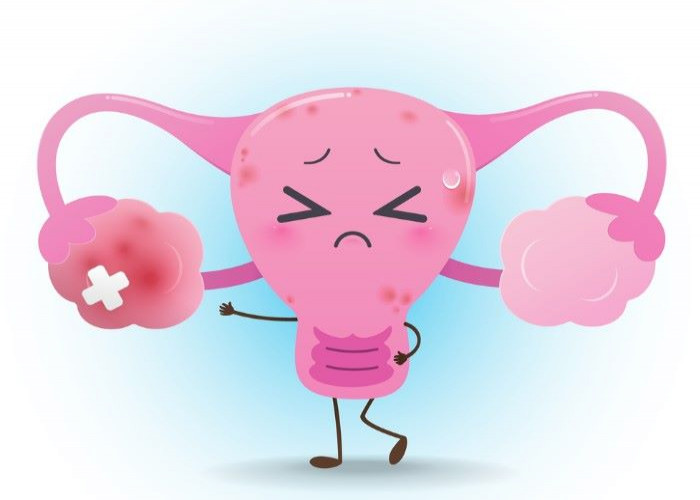 Welcome
Welcome
“May all be happy, may all be healed, may all be at peace and may no one ever suffer."
Uterine Inflammation (Cervicitis)

Cervicitis is inflammation of the cervix, which is the lower part of the uterus that opens into the vagina. It is most commonly caused by a sexually transmitted infection, such as chlamydia or gonorrhea, but can also be caused by other infections, trauma, or an allergic reaction. Symptoms of cervicitis may include vaginal discharge, pain during sex, and abnormal vaginal bleeding. Cervicitis can be diagnosed through a pelvic exam, cervical cultures, or other tests, and treatment typically involves antibiotics to clear any underlying infection. It is important to seek prompt medical attention if you suspect you may have cervicitis, as untreated cervicitis can lead to complications such as pelvic inflammatory disease and infertility. Practicing safe sex and getting regular gynecological exams can help prevent cervicitis and other reproductive health problems.
Research Papers
Disease Signs and Symptoms
- Vaginal bleeding
- Burning during urination
- Frequent urination
- Painful sexual intercourse (dyspareunia)
- Painful menstrual periods
- Vaginal bleeding after sex, not associated with a menstrual period
Disease Causes
Cervicitis
Possible causes of cervicitis include:
- Sexually transmitted infections. Most often, the bacterial and viral infections that cause cervicitis are transmitted by sexual contact. Cervicitis can result from common sexually transmitted infections (STIs), including gonorrhea, chlamydia, trichomoniasis and genital herpes.
- Allergic reactions. An allergy, either to contraceptive spermicides or to latex in condoms, may lead to cervicitis. A reaction to feminine hygiene products, such as douches or feminine deodorants, also can cause cervicitis.
- Bacterial overgrowth. An overgrowth of some of the bacteria that are normally present in the vagina (bacterial vaginosis) can lead to cervicitis.
Disease Prevents
Cervicitis
To reduce your risk of cervicitis from sexually transmitted infections, use condoms consistently and correctly each time you have sex. Condoms are very effective against the spread of STIs, such as gonorrhea and chlamydia, which can lead to cervicitis. Being in a long-term relationship in which both you and your uninfected partner are committed to having sex with each other exclusively can lower your odds of an STI.
Disease Treatments
You won't need treatment for cervicitis caused by an allergic reaction to products such as spermicide or feminine hygiene products. If you have cervicitis caused by a sexually transmitted infection (STI), both you and your partner will need treatment, often with an antibiotic medication. Antibiotics are prescribed for STIs such as gonorrhea, chlamydia or bacterial infections, including bacterial vaginosis.
Your doctor may offer antiviral medication if you have genital herpes, which helps decrease the amount of time you have cervicitis symptoms. However, there is no cure for herpes. Herpes is a chronic condition that may be passed to your sexual partner at any time.
Your doctor may also recommend repeat testing for cervicitis caused by gonorrhea or chlamydia.
To avoid passing a bacterial infection along to your partner, wait to have sex until you're finished with the treatment recommended by your doctor.
Disease Diagnoses
Disease Allopathic Generics
-
Cotrimoxazole
2 times a day for 7/10 days should be fed.
-
Nalidixic Acid
1 500mg pill 4 times a day for 5/7 days.
-
Doxycycline Hydrochloride
First day 2 together and then 1 2 times a day for 10/15 days.
-
Hyoscine Butylbromide
1/2 should be taken 3 times a day for 5/7 days.
-
Econazole Nitrate
2/3 times a day and night should be used internally in quantity.
-
Nortriptyline
1 each 2 times a day.
-
Metronidazole
1 pill 2 times a day for 10 days.
-
Oxytetracycline
2cc medicine should be injected into the meat after 6 hours.
-
Amoxicillin Trihydrate
After infection, the high-potency antibiotic amoxicillin should be given orally. 1 every 3 times a day.
-
Cephalexin
1 pill 4 times a day at night.
-
Erythromycin (Oral)
If penicillin allergic, erythromycin-containing medicine. 1 pill every 6 hours.
-
Paracetamol
If there is pain, paracetamol should be given. 1 pill 3 times a day.
-
Vitamin B complex
Vitamin B-complex supplements for energy.
1 2 times a day after meals.
Disease Ayurvedic Generics
Disease Homeopathic Generics
-
Arnica montana
6, 30 strength.
-
Arsenicum iodatum
2X, 3X strength.
-
Belladonna
6, 30 strength.
-
Ignatia amara
6, 200 strength.
-
Kalium hydro iodicum
1X strength.
-
Lilium tigrinum
200 strength.
-
Tilia europaea
Q strength.
-
Veratrum viride
6, 30 strength.
Disease yoga
Uterine Inflammation (Cervicitis) and Learn More about Diseases

Brachial plexus injury

Hyperthyroidism (Overactive Thyroid)

Delayed ejaculation

Central nervous system vascular malformations

Alcohol use disorder

Syphilis

Renal artery stenosis

IgA nephropathy (Berger's disease)
Uterine inflammation, Cervicitis, Inflamed uterus, জরায়ু প্রদাহ, সার্ভিসাইটিস
To be happy, beautiful, healthy, wealthy, hale and long-lived stay with DM3S.

